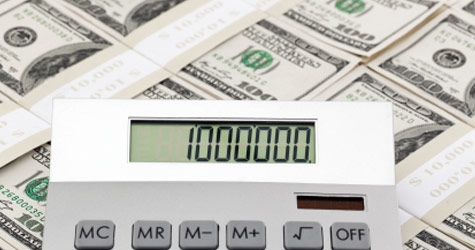Loan growth to private businesses in Saudi Arabia reached 15 percent in September, the most in more than three years, according to central bank data. The economy of the world's top oil exporter is set to expand 5.1 percent this year, the second-fastest pace in the Gulf Cooperation Council after Qatar, according to the median forecast of 15 economists compiled by Bloomberg.
Bank loans dedicated to building and construction surged 34 percent to SR72.5 billion ($19 billion) in the first nine months, according to central bank data. That's the fastest growth for the same period since at least 2008, when Bloomberg News started tracking the data. Saudi lending rates have jumped this year, triggering the widest spread over US rates in almost four years, according to data compiled by Bloomberg.
Saudi Arabia's housing stock is poised to expand by 2.4 million units in the next 10 years, with annual demand rising to 264,000 units by 2020 from 195,000 in 2011, National Commercial Bank said Oct. 1. Banks may double real estate financing to meet demand, the nation's biggest bank said.
"Housing shortage is huge in Saudi and housing affordability is a big problem," Yahya at Shuaa said. "The mortgage law addresses one of the big concerns of the population and that's why they have moved much faster on the law in the past 10 months than they have in the past 10 years."
"When you look at the thrust of government spending, it is built around the infrastructure side of the economy," Murad Ansari, a Riyadh-based analyst at investment bank EFG-Hermes Holding SAE, said by phone yesterday. "So it's not a surprise that you are seeing lending to the construction and building segment growing at a faster rate than the rest of the economy."
Makkah-based Jabal Omar Development Co. finalized a SR5 billion loan in September to build hotel towers to help accommodate the 10 million people who make their pilgrimage to Islam's holiest city each year. Tibah Airports Development Co. in June borrowed SR4.42 billion in a three-part syndicated loan, data compiled by Bloomberg showed.
"If the real estate, especially the residential, sector picks up properly and if the mortgage law does kick in as people are hoping it will, I think there will be a lot more years left for the construction boom," Asjad Yahya, an analyst at Shuaa Capital PSC in Dubai, said.
The three-month Saudi Interbank Offered Rate known as Saibor, the benchmark used by banks to price loans, gained most in the six-nation GCC this year amid the nation's credit revival. Three-month Saibor advanced 19 basis points, or 0.19 percentage point, to 0.97375 percent yesterday. The rate's spread over the London Interbank Offered Rate more than tripled to 66 basis points, the widest since January 2009, according to data compiled by Bloomberg.
Yields on local currency treasury bills have also climbed at weekly auctions. The one-year yield was 0.63066 percent at last week's sale, up 12 basis points since the end of 2011, data compiled by Bloomberg noted.
Still, credit to the construction industry accounts for only 7.5 percent of total loans and banks' willingness to lend to the industry has been affected by a rise in provisioning against bad loans from construction companies. Third-quarter earnings of the nation's banks missed analysts' estimates after contractor Mohammad Al-Mojil Group Co. defaulted on loans, Arqaam Capital Ltd. said in October.
Outstanding loans to the construction industry fell 1.3 percent at the end of September from three months earlier, according to central bank data.
"There might be a few cases like Mohammad Al-Mojil Group, but it doesn't look as if the whole sector is in trouble," Ansari of EFG-Hermes said. Most construction loans are approved against the expectation for periodic cash payments as construction milestones are reached, he said.
Dar Al Arkan Real Estate Development Co., the largest Saudi developer by market value, is set to post 6 percent growth in profit for 2012, snapping three years of drops, according to the average estimate of 10 analysts compiled by Bloomberg. The yield on the developer's 10.75 percent bonds due in February 2015 has dropped 84 basis points so far this quarter to 6.69 percent on Nov. 23.
The Saudi Gazette
28 November






















































